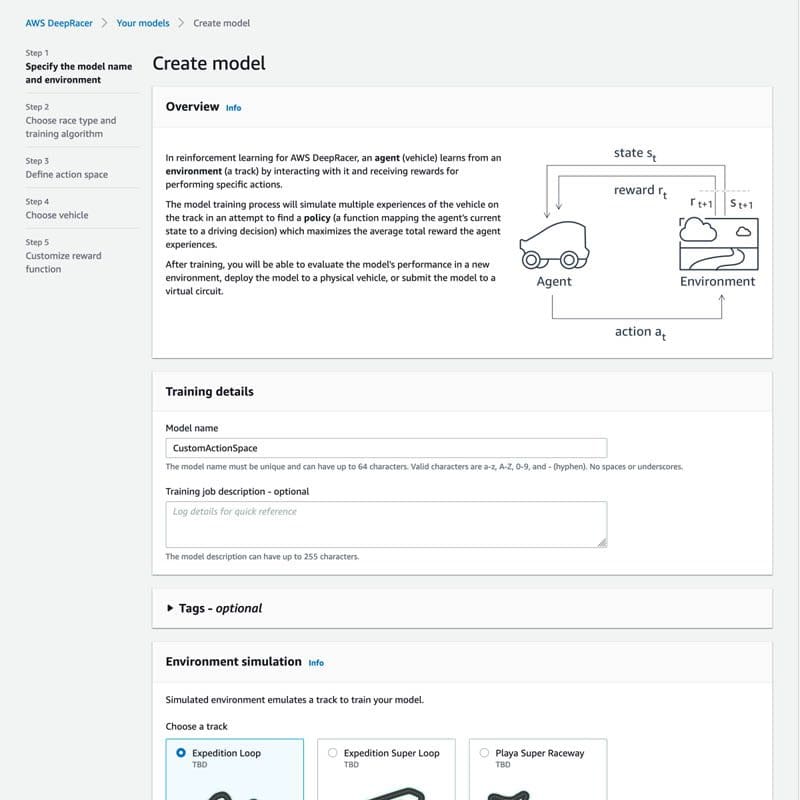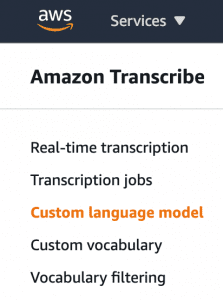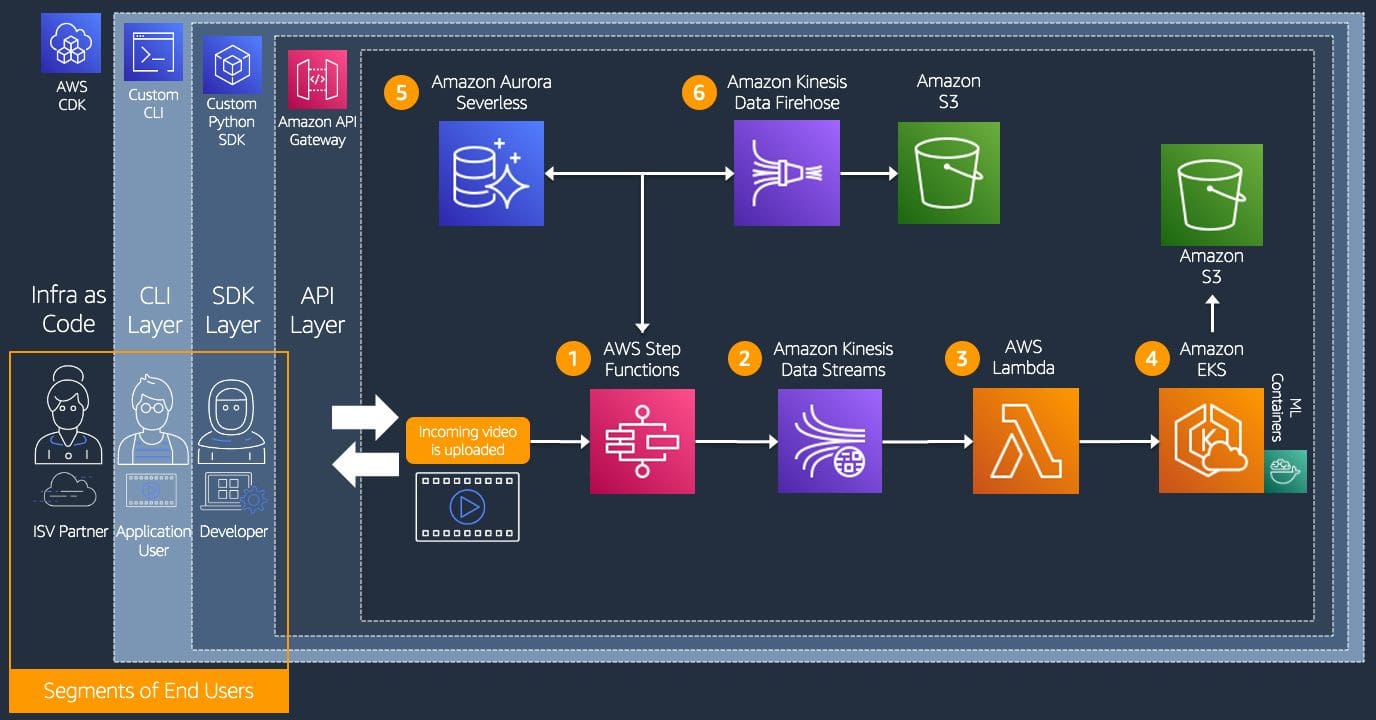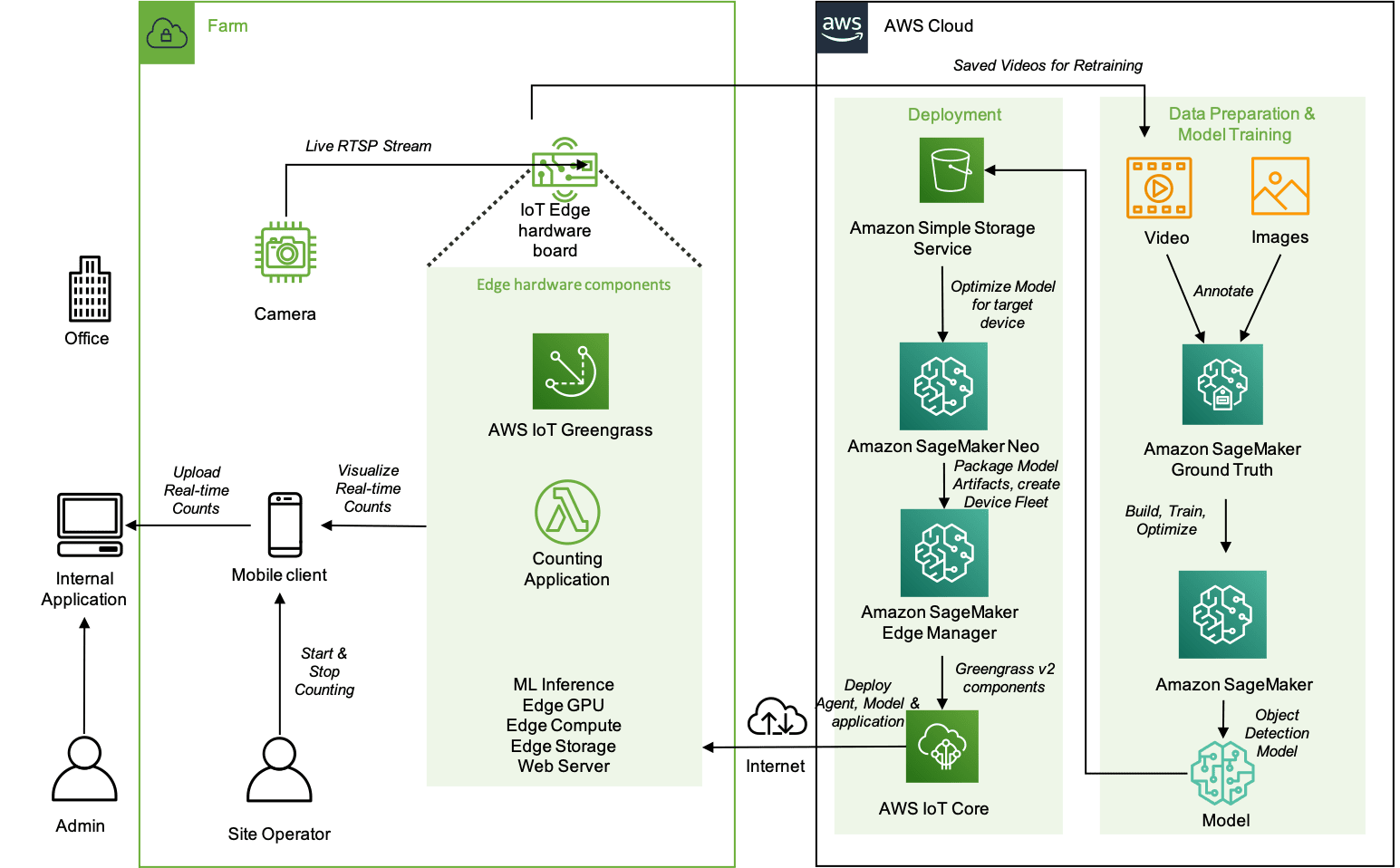Favorite Amazon Fraud Detector is a fully managed service that makes it easy to identify potentially fraudulent online activities, such as the creation of fake accounts or online payment fraud. Unlike general-purpose machine learning (ML) packages, Amazon Fraud Detector is designed specifically to detect fraud. Amazon Fraud Detector combines your
Read More
 Shared by AWS Machine Learning September 10, 2021
Shared by AWS Machine Learning September 10, 2021
Favorite Amazon S3 plugin for PyTorch is an open-source library which is built to be used with the deep learning framework PyTorch for streaming data from Amazon Simple Storage Service (Amazon S3). With this feature available in PyTorch Deep Learning Containers, you can take advantage of using data from S3
Read More
 Shared by AWS Machine Learning September 8, 2021
Shared by AWS Machine Learning September 8, 2021
Favorite AWS DeepRacer is the fastest way to get rolling with machine learning (ML) through a global racing league, cloud-based 3D racing simulator, and fully autonomous 1/18th scale race car driven by reinforcement learning. Starting today, the model action space is fully customizable yet simplified with new dynamic graphics so
Read More
 Shared by AWS Machine Learning September 8, 2021
Shared by AWS Machine Learning September 8, 2021
Favorite Many universities like transcribing their recorded class lectures and later creating captions out of these transcriptions. Amazon Transcribe is a fully-managed automatic speech recognition service (ASR) that makes it easy to add speech-to-text capabilities to voice-enabled applications. Transcribe assists in increasing accessibility and improving content engagement and learning outcomes
Read More
 Shared by AWS Machine Learning September 8, 2021
Shared by AWS Machine Learning September 8, 2021
Favorite Middle management can form an almost impenetrable layer to knowledge management in many organisations. Image from wikimedia commons The two main stakeholder groupings for KM are the senior managers and the knowledge workers. The value proposition for the senior managers is that KM will deliver greater efficiency, greater effectiveness, faster
Read More
 Shared by Nick Milton September 6, 2021
Shared by Nick Milton September 6, 2021
Favorite You can use various tools to define and run machine learning (ML) pipelines or DAGs (Directed Acyclic Graphs). Some popular options include AWS Step Functions, Apache Airflow, KubeFlow Pipelines (KFP), TensorFlow Extended (TFX), Argo, Luigi, and Amazon SageMaker Pipelines. All these tools help you compose pipelines in various languages
Read More
 Shared by AWS Machine Learning September 4, 2021
Shared by AWS Machine Learning September 4, 2021
Favorite The Intel Olympic Technology Group (OTG), a division within Intel focused on bringing cutting-edge technology to Olympic athletes, collaborated with AWS Machine Learning Professional Services (MLPS) to build a smart coaching software as a service (SaaS) application using computer vision (CV)-based pose estimation models. Pose estimation is a class
Read More
 Shared by AWS Machine Learning September 3, 2021
Shared by AWS Machine Learning September 3, 2021
Favorite Data scientists can spend up to 80% of their time preparing data for machine learning (ML) projects. This preparation process is largely undifferentiated and tedious work, and can involve multiple programming APIs and custom libraries. Announced at AWS re:Invent 2020, Amazon SageMaker Data Wrangler reduces the time it takes
Read More
 Shared by AWS Machine Learning September 3, 2021
Shared by AWS Machine Learning September 3, 2021
Favorite Running machine learning (ML) models at the edge can be a powerful enhancement for Internet of Things (IoT) solutions that must perform inference without a constant connection back to the cloud. Although there are numerous ways to train ML models for countless applications, effectively optimizing and deploying these models
Read More
 Shared by AWS Machine Learning September 3, 2021
Shared by AWS Machine Learning September 3, 2021
Favorite There’s a lot to love about online shopping: It’s fast, it’s easy and there are a ton of options to choose from. But there’s one obvious challenge — you can’t try anything on. This is something Google product manager Debbie Biswas noticed, as a tech industry veteran and startup
Read More
 Shared by Google AI Technology September 1, 2021
Shared by Google AI Technology September 1, 2021
![]() Shared by AWS Machine Learning September 10, 2021
Shared by AWS Machine Learning September 10, 2021







